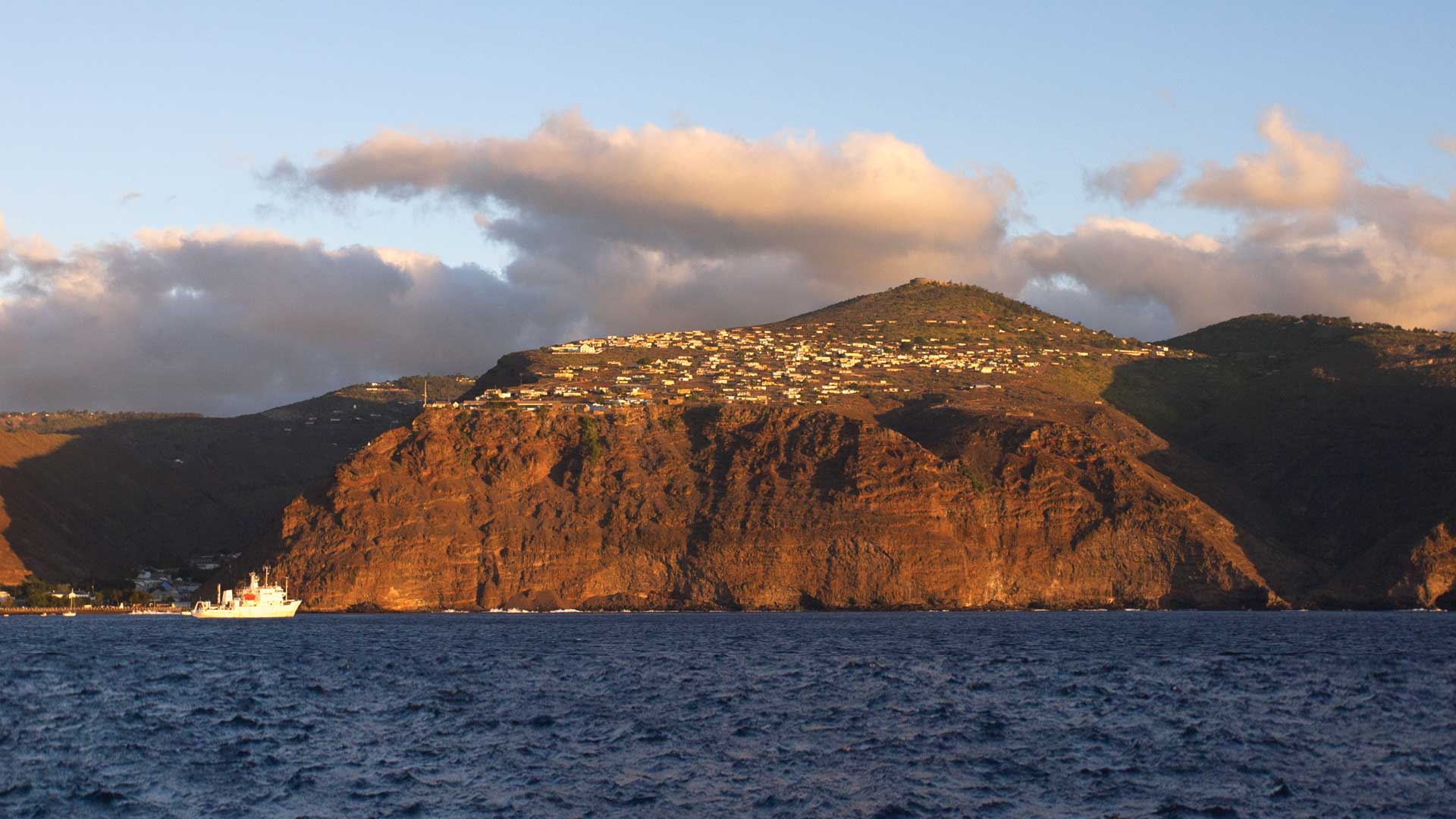The damage that even the threat of the virus is wreaking on St Helena
“Saints”, as the islanders are known, have encountered one problem after another over the past four years – just as they hoped their new airport would result in a huge increase in tourist numbers and, in turn, bring economic prosperity.
Now islanders have suffered another major blow: coronavirus. As yet, there are thankfully no cases of Covid-19 on St Helena but the tough measures brought in to ensure that the island remains free of the virus have once again killed off tourism for the foreseeable future.
There have been no passenger flights to or from St Helena since March 26. Furthermore, anyone arriving on the island now has to undergo 14 days of quarantine at what is known as Bradley’s Camp.
It is understandable that everyone is being cautious with the islanders’ health. It is estimated that more than half the population are in the “vulnerable” category, largely because of their age or because of underlying health conditions.
It is conceivable that hundreds of “Saints” could die if Covid-19 reaches the island and, in a worst-case scenario, up to half of the population could perish.
The annual St Helena Day celebrations on May 21 have been cancelled and morale on the island is said to be low. That’s entirely understandable: after all, how many setbacks can one small island take?
Mike Olsson is the owner of the St Helena Independent newspaper which, along with Saint FM radio station, I sponsor to ensure its editorial independence. He tells me: “The situation is very difficult. Tourism on the island will be non-existent for a long time, most likely until we have a vaccine.
“Other countries are starting to open up and can calculate to have some cases and some ‘losses’ but for us, who have never been exposed to such an illness and have a weak immune system due to this lack of exposure, it would be devastating if we got Covid-19.”
St Helena, about a third the size of the Isle of Wight, is a British Overseas Territory that became famous as the location where Napoleon Bonaparte, the defeated French emperor, spent the majority of his exile until his death in 1821.
As a volcanic island that erupted out of the South Atlantic 15 million years ago, it is one of the most remote places on earth: some 1,200 miles from the African mainland and 1,800 miles from Brazil.
The average full-time annual wage on the island is around £8,500 and the cost of living is much higher than in Britain because of the island’s remoteness.
Today the island’s controversial airport is essentially open only for emergency medevacs, although one Titan Airways chartered flight did land on April 20 with key medical supplies, including 960 coronavirus testing kits and five ventilators.
Food and other supplies, including fuel, are brought to the island by ship but fresh produce, such as milk, dairy and fresh vegetables, are in short supply. Visitors to the island consist mainly of a handful of “yachties” who have chosen to stop off on their way across the South Atlantic.
I have chronicled St Helena’s troubles in several blogs over the past four years, including ones based on my two most recent visits: I first visited the island with my parents as toddler more than 70 years ago. More recently I visited St Helena in January 2017.
The £285 million airport, paid for with British taxpayers’ money, eventually opened to passenger flights in October 2017 – there were previously a series of delays, including safety concerns caused by unpredictable side-winds.
Few, if any, business leaders on the island have had to cope with more setbacks than Hazel Wilmot, who owns the Consulate Hotel in the centre of Jamestown, the island’s capital. “The mood on the island is one of despair and quiet resignation,” she told me this weekend.
In anticipation of a tourist boom, Ms Wilmot spent nearly £2 million buying and renovating both her hotel in Jamestown. Before the airport opened, official figures predicted that the tourist numbers to the island would increase from around 1,000 a year to 29,000 a year by 2042 – levels of visitors that are now considered “pie in the sky” by most islanders.
Ms Wilmot tells me that her last “proper” paying guest at her hotel left on March 16 – since then she has had just a handful of “yachties” paying a heavily-reduced rate of just £20 a night. “I think it will be six months or more before I, and others like me, see any real income again,” she said.
“We are trying to find ways not just to tread water but keep our heads above water. All my savings have long gone and the private sector has to compete with a Government-owned, funded and heavily subsidised hotel [Mantis]. But where is a Wilmot there is a way!” According to Ms Wilmot, at least two business people on the island have recently been forced to sell their homes to repay bank loans.
Those involved in tourism continue to press for a direct air link to Europe, ideally Britain – rather than, or ideally as well as, South Africa. These people include Paul O’Sullivan, a successful South African businessman and the CEO of Trade Winds Corporation Plc (formerly St Helena Corporation Plc).
Mr O’Sullivan has ambitious, multi-million-pound leisure development plans for the island but St Helena’s partial “lockdown” means these are currently on hold. However, he believes that the setback is only temporary, telling me: “We just have to sit it out. I remain positive about the future of St Helena and hope that this time next year things will be back on track.”
A series of events are being planned for next year to mark the 200th anniversary of the exiled Napoleon’s death on St Helena – but even these must be in some doubt given the present circumstances.
Despite not having any cases of Covid-19, many “Saints” are practising social distancing and some shops are restricting the numbers allowed in at any one time. People with coronavirus-like symptoms are being urged to self-isolate…just in case.
Last month Baroness Sugg, the Parliamentary Under Secretary of State for International Aid, insisted that the UK is taking its responsibilities for the British Overseas Territories “extremely seriously”. These words have been backed up by action too: the British Government has allocated £2.5 million for coronavirus- linked aid to the island.
Lawson Henry is a member of the island’s five-strong island Executive Council (likened to a Cabinet) and also chairs the economic development committee. He told me: “There are shortages of some essential goods but retailers and importers are working with the St Helena Government to ration goods and this seems to be working.
“The Government has a number of support packages in place for business. The first to receive this support was the hospitality sector and this has been expanded to the construction sector and other businesses.
“I believe the Government is doing all it can in these challenging times but there are those who believe we should do more and others who think we have done too much.”
Dr Philip Rushbrook, the Governor of St Helena, has welcomed the arrival of emergency medical supplies and told islanders in a statement: “At times like these, it is crucial that we pull together as an island, using our good nature, compassion and resourcefulness for the greater good.”
My fondness for our 14 Overseas Territories, in general, and for St Helena, in particular, is on-going. So, too, is my concern for the well-being of “Saints” during these exacting times.
I continue to believe that it is a grave mistake that so much of our international aid budget, currently running at around £14.6 billion a year and enshrined in law, is wasted by corrupt and inept foreign regimes.
It is at times like these that we should be doing more to look after those closer to home and those in real need, including residents of St Helena and other Overseas Territories.
Reproduced with kind permission of Lord Ashcroft KCMG PC
This article was first published on Conservative Home on 12th May 2020 gbz.media/COVIDStHelena




